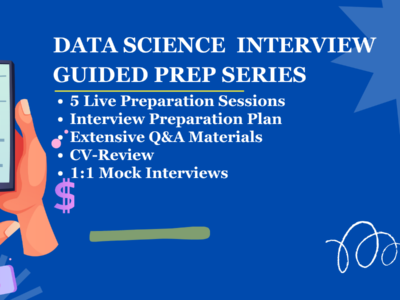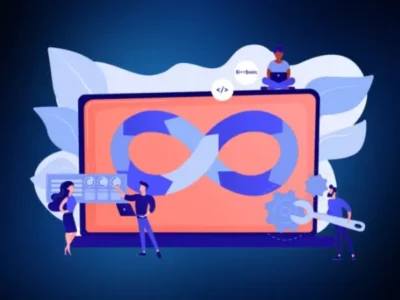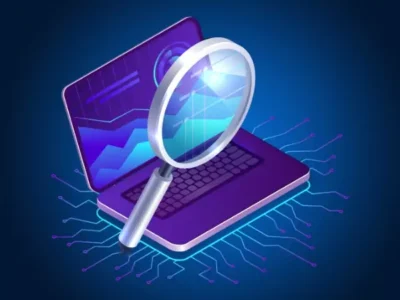Deep Learning – CNN for Image Processing using TensorFlow and Keras
Total Curriculum Duration – 20 Hours
Artificial Intelligence is on a rage! Everyone in the Technology world is talking about it and it is being touted as the godsent miracle to solve the most complex problems mankind wants to solve….
Course Introduction
Total Curriculum Duration – 20 Hours
Artificial Intelligence is on a rage! Everyone in the Technology world is talking about it and it is being touted as the godsent miracle to solve the most complex problems mankind wants to solve. Understanding the latest advancements in artificial intelligence can seem overwhelming, but it really boils down to two very popular concepts Machine Learning and Deep Learning. However, Deep Learning is gaining much huge popularity due to its clear supremacy in terms of performance in solving very complex problems.
As per Andrew Ng, Founder and Head of the Google Brain Project, “Deep-learning will transform every single industry. Healthcare and transportation will be transformed by deep-learning. I want to live in an AI-powered society. When anyone goes to see a doctor, I want AI to help that doctor provide higher quality and lower cost medical service. I want every five-year-old to have a personalised tutor.”
Deep Learning Market Trend
The Deep Learning Market is expected to register a CAGR of 42.56% over the forecast period from 2020 to 2025. Deep learning, a subfield of machine learning (ML), has led to breakthroughs in several artificial intelligence tasks, including speech recognition, natural language processing and image recognition.
There is massive amounts of money that Google, Microsoft, Amazon, Facebook and others are pouring in Deep Learning Research and development of Open Source products and libraries such as TensorFlow, CNTK, Keras, Theano, PyTorch, etc. By far, TensorFlow/Keras combination are leading the market in their penetration as the de-facto choice of Deep Learning Libraries of organisations around the world.
Global Artificial Intelligence Market, By Offering (Hardware, Software and Services), Technology (Machine Learning, Deep Learning, Natural Language Processing, Context-Aware Computing, Computer Vision), End-User Industry (Healthcare, Manufacturing, Automotive, Agriculture, Retail, Security, Human Resources, Marketing, Law, Fintech, Construction, Defense, Aerospace, Supply Chain, Building Automation, Consumer, Food and Beverage, Gaming, Media and Entertainment, Telecommunication and Oil and Gas) are expected to grow at a CAGR of 39.44% in the period of 2020 to 2027 to reach a level of USD 300 Billion by 2027.
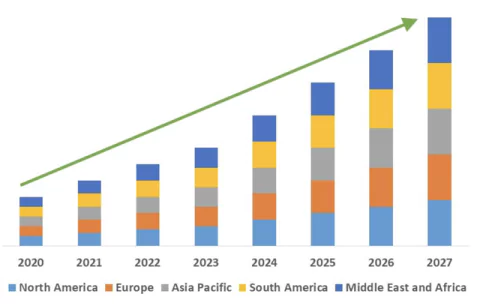
This phenomena is indicative of a massive surge in demand for Data Science and Machine Learning professionals. The ones among them who possess superior Deep Learning skills are going to be the most successful and will demand salaried at a much higher rate.
Convolutional Neural Network
In deep learning, a Convolutional Neural Network or CNN is a class of Artificial Neural Networks or Deep Neural Networks, most commonly applied to analyse visual imagery. Common applications include image analysis and processing, face detection, object detection which has massive amounts of usage in many domains, emotion analysis, more complex usages include uses in self driving cars, etc.
Image processing use cases have gathered massive amount of use cases in the industry and consequently, the demand for CNN experts have surged.
Skills You will acquire
- Artificial Neural Network
- Deep Neural Network
- Convolutional Neural Network
- TensorFlow
- Keras
Program Structure
- Mode – Live Online, Instructor Led
- Days/Timings – Weekend Batches / Morning 10:00 am – 1 pm (Saturday/Sunday)
Technologies Covered

Course Outline
1. Week 1: Introduction to Deep Learning
Lesson Content –
- Understanding Neural Networks
- Deep Neural Network Architectures
- Introduction to TensorFlow and Keras
- Training a Deep Neural Network
- Gradient-based Optimisation
- Chaining Derivatives and Backpropagation
- Loss Functions, Optimizers, Initializers
- Batch-normalization
- Dropouts
- Understanding Image Data
- Understanding the Convolution Layer
- Filters and Feature Maps
- Pooling Layer
2. Week 1-2: CNN Architectures
Lesson Content –
- LeNet-5
- AlexNet
- VGGNet
- ResNet
- XceptionNet
- SENet
- Implementing a Convolutional Network using Keras
- Image Augmentation Techniques
- Using Pretrained Models and Transfer Learning
3. Week 3: Object Detection
Lesson Content –
- Fully Convolutional Networks
- You Only Look Once(YOLO) Networks
- Semantic Segmentation
- Project Discussion
Real Life Projects
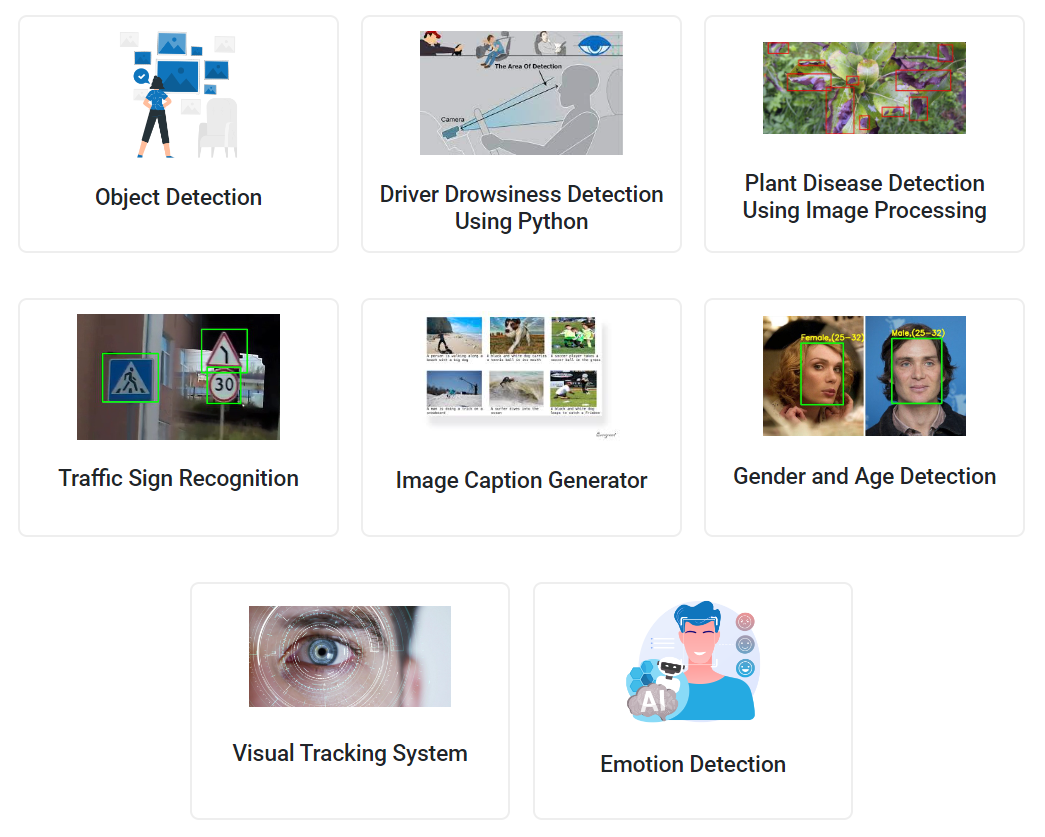
FAQs
1. What are the Professions/Job Roles in Data Science & Analytics space?
Data Science and Predictive Analytics has served a multitude of functions and job needs and a lot of Job Roles are created in organizations in the last few years. Some of the prominent Job Roles in this space are listed below:
Data Scientist: Data Scientists would have the responsibility of understanding and analysing all the data the organisation has and create Data Driven products and solutions to create businesses processes more efficient, drive automation, create decision systems, future prediction systems, etc.
Data Architect: Data Architects would typically analyse the organisational Data Schemas, design new schemas for newer data driven systems , tune existing data schemas, optimise organisational Mete Data and all data repositories including ETL Systems.
Data and Analytics Manager: Responsible for managing and leading Data initiatives in the organisation, including leadership in ETL programs, Decision Systems programs, leading analytics teams, etc.
Data Analyst: Data Analysts typically gather and analyse data within divisions and organisation for the purpose of building Insights and Analytics solutions and systems using a range of tools, techniques including statistics. This role is highly important for the leadership of any organisation to develop understanding of business trends.
Machine Learning Engineer: Responsible for developing sophisticated Machine Learning Models that are to create various Decision, Prediction, Classification, Clustering systems on Business Data. All the roles above and the plethora of roles this space is offering are growing rapidly in demand and skills shortfall is even expanding leading to high salaries for every skilled personnel in these fields.
Given “Data is the new Fuel”, demand for professionals in these fields in the many years to come will continue to expand unabated creating massive opportunities for data professionals.
2. What is the skill demand in this field?
With Data Science applications booming through businesses leading to saving costs, better profitability and driving newer business models and products, the demand for these skills have skyrocketed. Literally, every business today is after quality skilled professionals in Data Science and Analytics. Not only they are looking for Data Science and Predictive Analytics skills to create new solutions, but preferring these as must-have skills in all other fields to drive continuous automation and efficiency. Even Business and Operations personnel are today are equipping themselves with foundational knowledge in these areas to save costs through automation.
Some statistics:
- 70-80% Year on Year New Job Numbers Growth in Data Science and related skills
- 15-20% Year on Year Average Salary Growth in these fields
- 85% of the Companies are Investing and expanding their Data Science Teams rapidly
- In 2020-21, there is a net shortage of 250,000+ skilled resources in these fields
- 2 Years is approximate Data Science Staff Tenure in companies
3. What is the approach of Teaching?
The course is completely based on practical approaches of teaching. Learners will have intense exposure to real code and data while learning the concepts on the go. We will also provide you all the codes used in training and also additional problems for you to work on and practice.
The Delivery method is Online, Live Classes led by Professional, Industry Experienced Instructors.
4. What is the course duration?
20 Hours
Weekday Courses: Over 2 Weeks, all Weekdays (Monday to Friday), 2 hour Sessions per day.
Weekend Courses: Over 3 Weekends, Saturdays and Sundays, 3.5 hour Sessions per day.
(Please check your specific course schedule)
5. Is there any software Requirements for this course?
- Laptop with Windows 7, 8, 10 / MacOS / Linux
- Internet Connectivity
- Latest Chrome / Firefox Browser
- Microsoft Excel
- Python Version 3 or above (https://www.python.org/downloads/)
- Anaconda Platform (https://www.anaconda.com/distribution/)
6. Who are the instructors for this course?
All courses on Teksands are taught by Industry Professionals, highly qualified and focused Research Scholars from Reputed University
Curriculum
Curriculum
- 3 Sections
- 26 Lessons
- 20 Hours
- Week 1: Introduction to Deep LearningLesson Content -13
- 1.1Understanding Neural Networks
- 1.2Deep Neural Network Architectures
- 1.3Introduction to TensorFlow and Keras
- 1.4Training a Deep Neural Network
- 1.5Gradient-based Optimisation
- 1.6Chaining Derivatives and Backpropagation
- 1.7Loss Functions, Optimizers, Initializers
- 1.8Batch-normalization
- 1.9Dropouts
- 1.10Understanding Image Data
- 1.11Understanding the Convolution Layer
- 1.12Filters and Feature Maps
- 1.13Pooling Layer
- Week 1-2: CNN ArchitecturesLesson Content -9
- Week 3: Object DetectionLesson Content -4

